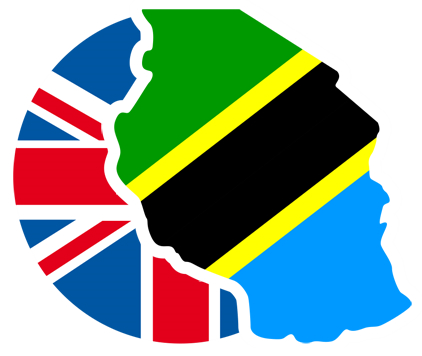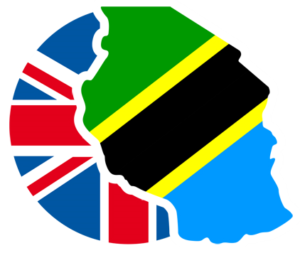Economy
UK to Boost Trade, Jobs in Tanzania


By Modupe Gbadeyanka
The United Kingdom (UK) has promised to sharpen its focus on economic development in the world’s poorest countries to help create the economic growth that will sustain rapidly growing populations, provide a long term solution to poverty and deal with the root causes of problems that affect Britain and Tanzania.
This pledge was made by the International Development Secretary, Priti Patel on Tuesday, January 31, 2017.
Over the next decade, a billion more young people will enter the job market, mainly in Asia and Sub-Saharan Africa. Africa’s population is set to double by 2050. This demographic challenge will add to the pressure of protracted crises and mass migration.
DFID’s first Economic Development Strategy sets out how investment in economic development will help developing nations speed up their rate of economic growth , trade more and industrialise faster, and ultimately lift themselves out of poverty.
By helping the world’s poorest countries grow their economies, this investment will help create the UK’s trading partners of the future, boost global prosperity and address some of the root causes of global issues such mass migration and instability that affect the UK.
Patel said, “There is no task more urgent than defeating poverty. The UK has a proud record of supporting people in desperate humanitarian crises, but emergency help alone won’t tackle the global changes we face.
“With dramatic increases in population across Africa and Asia, developing nations must act fast to create jobs and investment, which is why Global Britain is leading a more open, more modern approach to development through our economic development to help the world’s poorest countries stand on their own two feet.
“With the UK’s support, more people across Tanzania have the chance to get a job and build a brighter future for themselves and their families. The UK will continue to build this partnership between our two countries.
“Over the next decade a billion more young people will enter the job market. Africa’s population is set to double by 2050 and as many as 18 million extra jobs will be needed. Failure will consign a generation to a future where jobs and opportunity are out of reach; potentially fuelling instability and mass migration with direct consequences for Britain.
“Developing countries want to harness trade, growth and investment opportunities and Britain will lead the way to lift huge numbers out of grinding poverty to prosperity.”
“The department will work across government to increase the number and quality of jobs in poor countries, enable businesses to grow and prosper, support better infrastructure, technology and a skilled and healthy workforce.”
Patel further disclosed that the announcement builds on the UK’s existing work to drive economic development, which has helped almost 70 million people access financial services, over 6 million people improve their land and property rights, and improved access to clean energy for over 6 million people.
“Through the new Economic Development Strategy DFID will build the potential for developing countries to trade more with the UK and the world; create economic opportunities in fragile and conflict states where jobs and livelihoods are desperately needed; build partnerships with business – including Small and Medium Business (SMEs) – to make it easier for companies, including those in the UK, to invest in markets of the future; work closely with the City of London so it becomes the leading financial centre for the developing world; focus investment in job-creating sectors such as manufacturing, infrastructure and commercial agriculture to provide strong foundations for sustainable growth; use the UK’s voice in the World Trade Organisation (WTO) to argue for better and fairer trading rules; strengthen institutions, tackle corruption and help countries mobilise their own domestic resources to support their development; and continue to champion innovative private finance investment to stimulate growth, CDC will be at the heart of this.
Patel pointed out that the UK support to Tanzania is helping to Improve Tanzania’s main port and regional trade gateway to allow port capacity to double by 2023 and develop the transport corridors that Tanzania and the region need; connect more than 400,000 homes in Tanzania, Kenya and Uganda to solar power, providing 50 million hours of fume-free lighting a month and creating 2,500 jobs; and build over 1,230 km of rural roads. Rural communities now report better access to healthcare, schools and agricultural services.
Economy
UK, Canada, Others Back New Cashew Nut Processing Plant Construction in Ogun

By Adedapo Adesanya
GuarantCo, part of the Private Infrastructure Development Group (PIDG), has provided a 100 per cent guarantee to support a $75 million debt facility for Robust International Pte Ltd (Robust) to construct a new cashew nut processing plant in Ogun State, Nigeria.
GuarantCo, under the PIDG is funded by the United Kingdom, the Netherlands, Switzerland, Australia, Sweden and Canada, mobilises private sector local currency investment for infrastructure projects and supports the development of financial markets in lower-income countries across Africa and Asia.
Nigeria is one of Africa’s largest cashew producers of 300,000 tonnes of raw cashew nuts annually, yet currently less than 10 per cent are processed domestically. Most raw nuts are exported unprocessed to Asian and other countries, forfeiting up to 80 per cent of their potential export value and adding exposure to foreign exchange fluctuations.
According to GuarantCo, this additional plant will more than double Robust’s existing cashew processing capacity from 100 metric tonnes per day to 220 metric tonnes per day to help reduce this structural gap.
The new plant will be of extensive benefit to the local economy, with the procurement of cashew nuts from around 10,000 primarily low-income smallholder farmers.
There is an expected increase in export revenue of up to $335 million and procurement from the local supply chain over the lifetime of the guarantee.
Furthermore, the new plant will incorporate functionality to convert waste by-products into value-added biomass and biofuel inputs to enhance the environmental impact of the transaction.
It is anticipated that up to 900 jobs will be created, with as many as 78 per cent to be held by women. Robust also has a target to gradually increase the share of procurement from women farmers, from 15 per cent to 25 per cent by 2028, as it reaches new regions in Nigeria and extends its ongoing gender-responsive outreach programme for farmers.
Terms of the deal showed that the debt facility was provided by a Symbiotics-arranged bond platform, which in turn issued notes with the benefit of the GuarantCo guarantee. These notes have been subscribed to in full by M&G Investments. The transaction was executed in record time due to the successful replication of two recent transactions in Côte d’Ivoire and Senegal, again in collaboration with M&G Investments and Symbiotics.
Speaking on the development, the British Deputy High Commissioner, Mr Jonny Baxter, said: “The UK is proud to support innovative financing that mobilises private capital into Nigeria’s productive economy through UK-backed institutions such as PIDG. By backing investment into local processing and value addition, this transaction supports jobs, exports and more resilient agricultural supply chains. Complementing this, through the UK-Nigeria Enhanced Trade and Investment Partnerships and the Developing Countries Trading Scheme, the UK is supporting Nigerian businesses to scale exports to the UK and beyond, demonstrating how UK-backed partnerships help firms grow and compete internationally.”
Mr Dave Chalila, Head of Africa and Middle East Investments at GuarantCo, said: “This transaction marks GuarantCo’s third collaboration with M&G Investments and Symbiotics, emphasising our efforts to bring replicability to everything we do so that we accelerate socio-economic development where it matters most. The transaction is consistent with PIDG’s mandate to mobilise private capital into high-impact, underfinanced sectors. In this case, crowding in institutional investors in the African agri-processing value chain.
“As with the two recent similarly structured transactions, funding is channelled through the Symbiotics institutional investor platform, with the notes externally rated by Fitch and benefiting from a rating uplift due to the GuarantCo guarantee.”
Adding his input, Mr Vishanth Narayan, Group Executive Director at Robust International Group, said: “As a global leader in agricultural commodities, Robust International remains steadfast in its commitment to building resilient, ethical and value-adding supply chains across origin and destination markets. This transaction represents an important step in advancing our long-term strategy of strengthening processing capabilities, deepening engagement with farmers and enhancing local value addition in the regions where we operate. Through sustained investment, disciplined execution and decades of operating experience, we continue to focus on delivering reliable, high-quality products while fostering inclusive and sustainable economic growth.”
For Ms María Redondo, director at M&G Investments, “The guarantee gives us the assurance to invest in hard currency, emerging market debt, while supporting Robust’s new cashew processing plant in Nigeria. It’s a clear example of how smart credit enhancement can unlock institutional capital for high-impact development and manage currency and credit risks effectively. This is another strong step in channelling institutional capital into meaningful, on‑the‑ground growth.”
Also, Ms Valeria Berzunza, Structuring & Arranging at Symbiotics, said: “We are pleased to continue our collaboration with M&G Investments, GuarantCo, and now with Robust through a transaction with a strong social and gender focus, demonstrating that well-structured products can boost commercially attractive, viable, and impactful investments.”
Economy
MTN to Acquire Additional 75% Stake in IHS Holdings for Full Control

By Adedapo Adesanya
MTN Group, Africa’s largest mobile network operator, has entered advanced discussions to buy approximately 75 per cent of shares in IHS Holding Limited (IHS Towers) that it does not already own.
The move would give the South African telco full control of IHS, which is the leading independent tower operator in several of its key markets, providing colocation services and supporting the expansion of mobile networks in regions with growing demand for digital connectivity.
In a cautionary announcement to investors on Thursday, MTN confirmed it is considering a transaction to acquire the remaining stake in the New York Stock Exchange-listed IHS, following recent market speculation.
The potential offer price would be “at a level near the last trading price” of IHS shares on the NYSE as of February 4, 2025, a period when the stock has seen a sharp rise in recent months, reflecting renewed investor confidence in the sector.
No binding agreement has been reached, and MTN emphasised there is no certainty that the deal will proceed.
However, if completed, the transaction could materially impact MTN’s share price, prompting the company to advise shareholders to exercise caution in trading until further updates.
MTN already holds a significant stake in IHS and maintains a deep operational partnership across multiple African markets.
Over the past decade, MTN has sold thousands of passive network sites to IHS through sale-and-leaseback deals, including a major transaction in South Africa in 2022 involving over 5,700 towers.
These arrangements allowed MTN to free up capital from infrastructure while securing long-term tower access via master lease agreements.
A full buyout would represent a dramatic strategic pivot for MTN, effectively bringing tower infrastructure back in-house after years of outsourcing to specialised operators like IHS.
MTN has previously voiced concerns about corporate governance at IHS, adding context to its cautious approach in the announcement.
If the deal falls through, MTN said it would continue exploring options to unlock value from its IHS investment, consistent with its disciplined capital allocation strategy.
The potential acquisition underscores the evolving dynamics in Africa’s telecom infrastructure sector, where operators weigh the benefits of owning versus leasing critical assets amid rising data demands and economic pressures.
Economy
NASD Exchange Moves Higher by 0.77%

By Adedapo Adesanya
For the third consecutive trading session, the NASD Over-the-Counter (OTC) Securities Exchange ended in the green territory, rising further by 0.77 per cent on Thursday, February 5.
Two price gainers helped the bourse to rally during the session, with the market capitalisation up by N16.87 billion to N2.197 trillion from N2.180 trillion and the NASD Unlisted Security Index (NSI) up by 3.18 points to 3,672 points from the 3,644.48 points in the midweek session.
The advancers’ group was led by Central Securities Clearing System (CSCS), which added N3.70 to sell at N48.67 per share versus the previous day’s N44.97 per share, and Afriland Properties Plc expanded by N1.01 to N15.01 per unit from N14.01 per unit.
It was observed that the alternative stock exchange recorded two price losers led by Geo-Fluids Plc, which further lost 51 Kobo to sell at N4.75 per share versus Wednesday’s closing price of N5.26 per share, and Industrial and General Insurance (IGI) declined by 6 Kobo to 59 Kobo per unit from 65 Kobo per unit.
During the session, the volume of securities transacted by investors slid by 51.9 per cent to 1.2 million units from 2.5 million units, the value of securities went down by 32.0 per cent to N12.0 million from N17.7 million, and the number of deals increased by 27.8 per cent to 23 deals from 18 deals.
At the close of trades, CSCS Plc was the most traded stock by value on a year-to-date basis with 16.2 million units exchanged for N659.9 million, followed by FrieslandCampina Wamco Nigeria Plc with 1.7 million units traded for N117.8 million, and Geo-Fluids Plc with 12.3 million units valued at N79.1 million.
CSCS Plc remained the most active stock by volume on a year-to-date basis with 16.2 million units sold for N659.9 million, trailed by Mass Telecom Innovation Plc with 13.6 million units valued at N5.5 million, and Geo-Fluids Plc with 12.3 million units worth N79.1 million.
-

 Feature/OPED6 years ago
Feature/OPED6 years agoDavos was Different this year
-
Travel/Tourism9 years ago
Lagos Seals Western Lodge Hotel In Ikorodu
-

 Showbiz3 years ago
Showbiz3 years agoEstranged Lover Releases Videos of Empress Njamah Bathing
-

 Banking8 years ago
Banking8 years agoSort Codes of GTBank Branches in Nigeria
-

 Economy3 years ago
Economy3 years agoSubsidy Removal: CNG at N130 Per Litre Cheaper Than Petrol—IPMAN
-

 Banking3 years ago
Banking3 years agoSort Codes of UBA Branches in Nigeria
-

 Banking3 years ago
Banking3 years agoFirst Bank Announces Planned Downtime
-

 Sports3 years ago
Sports3 years agoHighest Paid Nigerian Footballer – How Much Do Nigerian Footballers Earn












